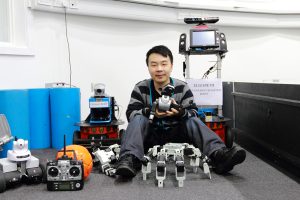10 May 2024
In celebration of the Earth Day, the Sustainability Steering Group of the Design School at Xi’an Jiaotong-Liverpool University kicked off a special project “Development of Vertical Farm”, at the ES building atrium.
The Design School is actively promoting the core value of “Education for Sustainable Development” (ESD), and the special project was one of the ongoing efforts to promote ESD.
This project aims to highlight the importance of creating new ecological approach to design and to raise awareness about sustainability and innovative design practices and education. This project will also be related to some of sustainability related modules of the Design School.
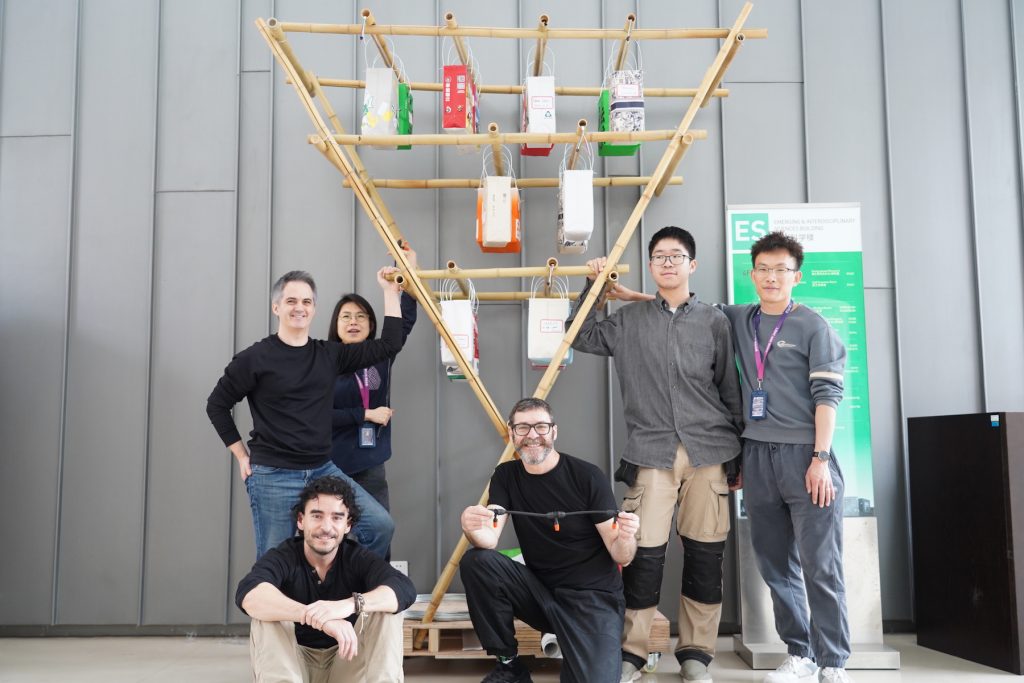
Environment-friendly vertical farm
The vertical farm is an outdoor edible vegetable farm system designed with volunteer students and staff. The construction is made, using mostly waste materials from the Design School (bamboo, wire, pallets) and the delivery food carriers’ bags, to highlight the importance of reusing materials and the potential of those to create new ecological approaches to design.
The starting point of the project is to reuse takeaway food packaging bags from a new perspective. Vicente Esteban, the programme director of MDes Industrial Design and Sustainability Officer for Industrial Design, explained that these takeaway insulated bags, due to their aluminium packaging, cannot be recycled.
“The only solution to this problem is to repurpose them for different uses, avoiding landfill incineration,” he said.
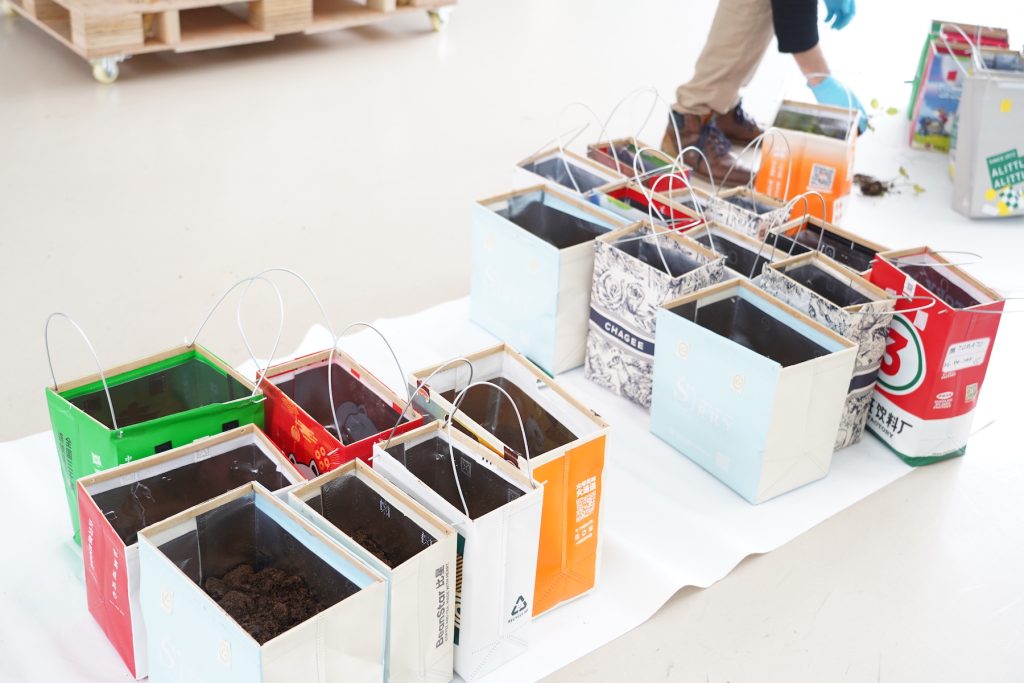
Jian Chen, Lab Manager of the Design School, said: “Growing crops is an innovative and appropriate way to reuse these takeaway bags, which not only prevents water from seeping down but is also very sturdy.”
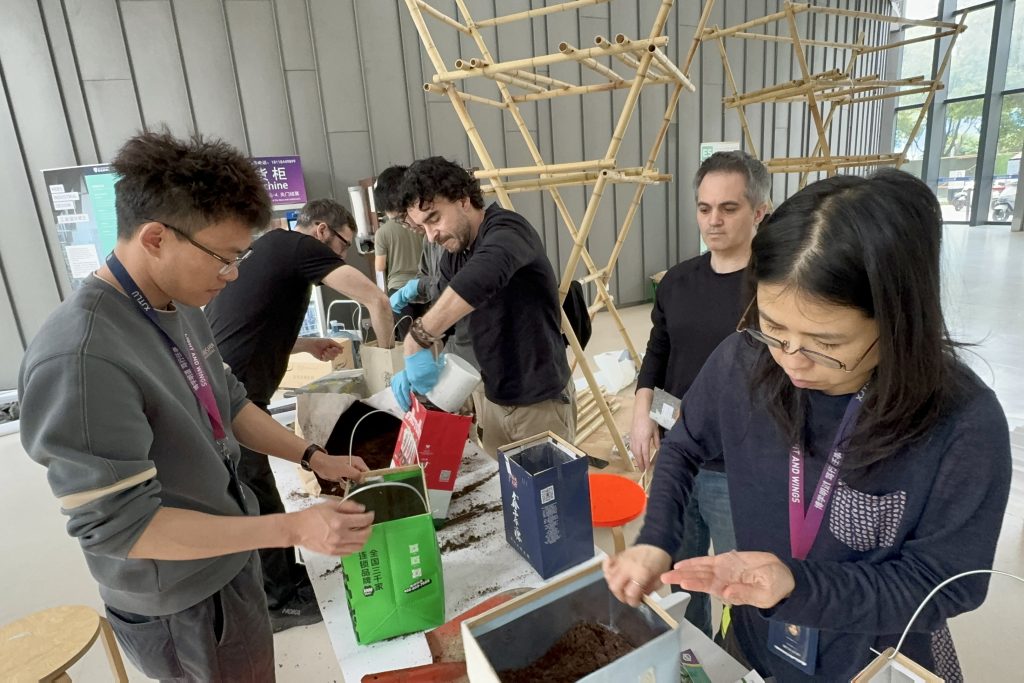
Sustainable innovation
After careful planning, the crops selected for cultivation in the vertical farm include a variety of resilient edible plants that are more resistant to climate change, including tomatoes, mini cucumbers, mini watermelons, herbs, and chilli peppers.
To ensure optimal growth conditions for the crops, the vertical farm incorporates LED light bars and an automatic watering system. The LED lights provide the necessary light spectrum for plant growth, while the watering system ensures that the plants receive adequate moisture.
This combination of technology and sustainable design principles demonstrates the potential for innovative solutions to environmental challenges.
One of the key aspects of the vertical farm project is its independence and self-sustainability. “Once established, the farm will require minimal human intervention, thanks to its automated systems.
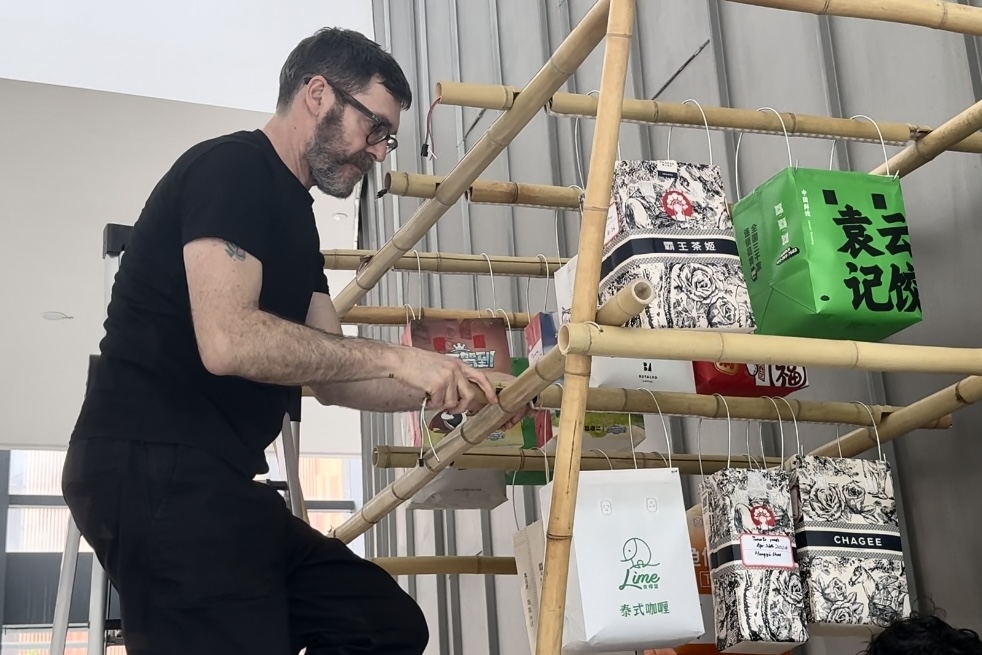
“This event serves as a beacon of sustainable innovation, highlighting the importance of reusing materials, promoting sustainability, and showcasing the potential of eco-friendly design solutions.
“I also hope to raise awareness of the impact of food waste and takeaway food with the event,” Esteban added.
By Yaxin Liu
Edited by Yi Qian
Photos by Yaxin Liu
10 May 2024

